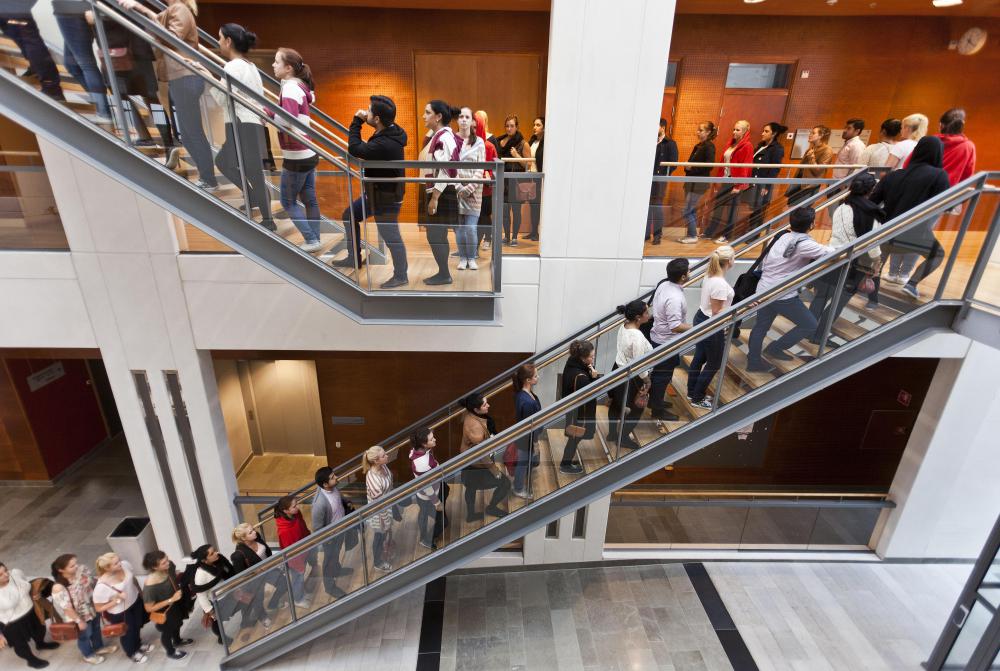At SmartCapitalMind, we're committed to delivering accurate, trustworthy information. Our expert-authored content is rigorously fact-checked and sourced from credible authorities. Discover how we uphold the highest standards in providing you with reliable knowledge.
What are Leasehold Improvements?
Leasehold improvements are alterations to a building which are made by a tenant to make the space more usable. Some examples of leasehold improvements include: painting, installing retail counters, partitioning, replacing flooring, and building dressing rooms, among many other things. Leasehold improvements are also sometimes referred to as “build-outs,” and depending on the nature of the improvement, it may be considered the property of the tenant, or the property of the owner.
If a leasehold improvement can be removed without damaging the structure or violating the terms of the lease, the tenant has the right to remove it when he or she leaves. For example, the owners of a spa could opt to take their hot tubs, saunas, and body treatment equipment with them, stripping the space so that it looks like it did originally. On the other hand, if a tenant paints his or her house, removing the paint would obviously damage the structure, in addition to being rather silly, so the leasehold improvement is considered the property of the landlord.

Some landlords pay for leasehold improvements to make their leases more appealing, and in these instances, the improvements belong to the landlord. The landlord would also have the right to deduct the expense of the improvements and their depreciation over time from his or her taxes. Many landlords in spaces like malls offer leasehold improvements as part of their contracts, to lure in clients.

When a tenant undertakes leasehold improvements, the landlord must be consulted, whether the tenant plans to replace bathroom flooring or create a series of offices. Landlords can decide that they do not approve of the proposed improvements, and request that the tenant propose a different plan. The tenant is able to deduct the cost and depreciation of leasehold improvements he or she pays for, reflecting the fact that these renovations are necessary for the space to be usable.

Tenants should be aware that many nations have specific laws about the responsibility of the landlord. For example, landlords are often required to provide access to running water and electricity. Therefore, a tenant would not need to pay for the installation of access to water and a water meter, although the tenant might need to pay for specialized plumbing in the structure. Likewise, many landlords are expected to perform routine maintenance such as roofing and safety improvements, so tenants should not have to pay for these types of renovations.
AS FEATURED ON:
AS FEATURED ON:














Discussion Comments
I've got a question to ask: A friend who has a nail and beauty salon lost all electricity one afternoon. When she contacted an electrician he said the meter board and meter were so old they had to be replaced.
To ensure business continuity was maintained, she authorized the work to proceed at a cost of $1800. The landlord's agent said the landlord would not be paying for the electrical work. Where does she stand with this? --Alex
I need to know if I can install insulation and have it be deducted from my rent because I do not intend to take it with me when I move and I have to pay for oil to heat my house and to have hot water. It is getting outrageously expensive and I cannot afford to move. What can I do?
I've never had to lease a building for a business, but I have a family member who has. When he was putting in tile, and counters, and adjusting the size of rooms, I was a bit confused. I didn't understand how it could be okay for him to make all of those changes to a property that he didn't actually own.
I remember wondering if the landlord knew what he was doing. But then I realized that this happens for pretty much every new business that leases a building. Every business needs the building to look different. So I figured it must be okay, but I didn't understand how.
Thank you for clearing up my confusion!
I've always wondered about this kind of stuff, especially in a residential setting. I can understand why you would want to make changes to a space that you are leasing for business purposes, but what about a home that you are leasing?
I've rented plenty of homes and there were improvements that I would have liked to make. However, I always thought it would be a waste of my money to improve a house that belonged to someone else. I may get to enjoy the update for a period of time, but in the end, I'll lose out when I move.
Do residential landlords make agreements to pay for leasehold improvements? I wouldn't mind putting the work in, or being responsible for hiring someone else to do the work, but I wouldn't want to put a lot of money into a house I didn't own.
I had a question: what is the recovery period of such improvements made by the Tenant? is it the lease period or the actual recovery period of the improvements under MACRS?
Post your comments